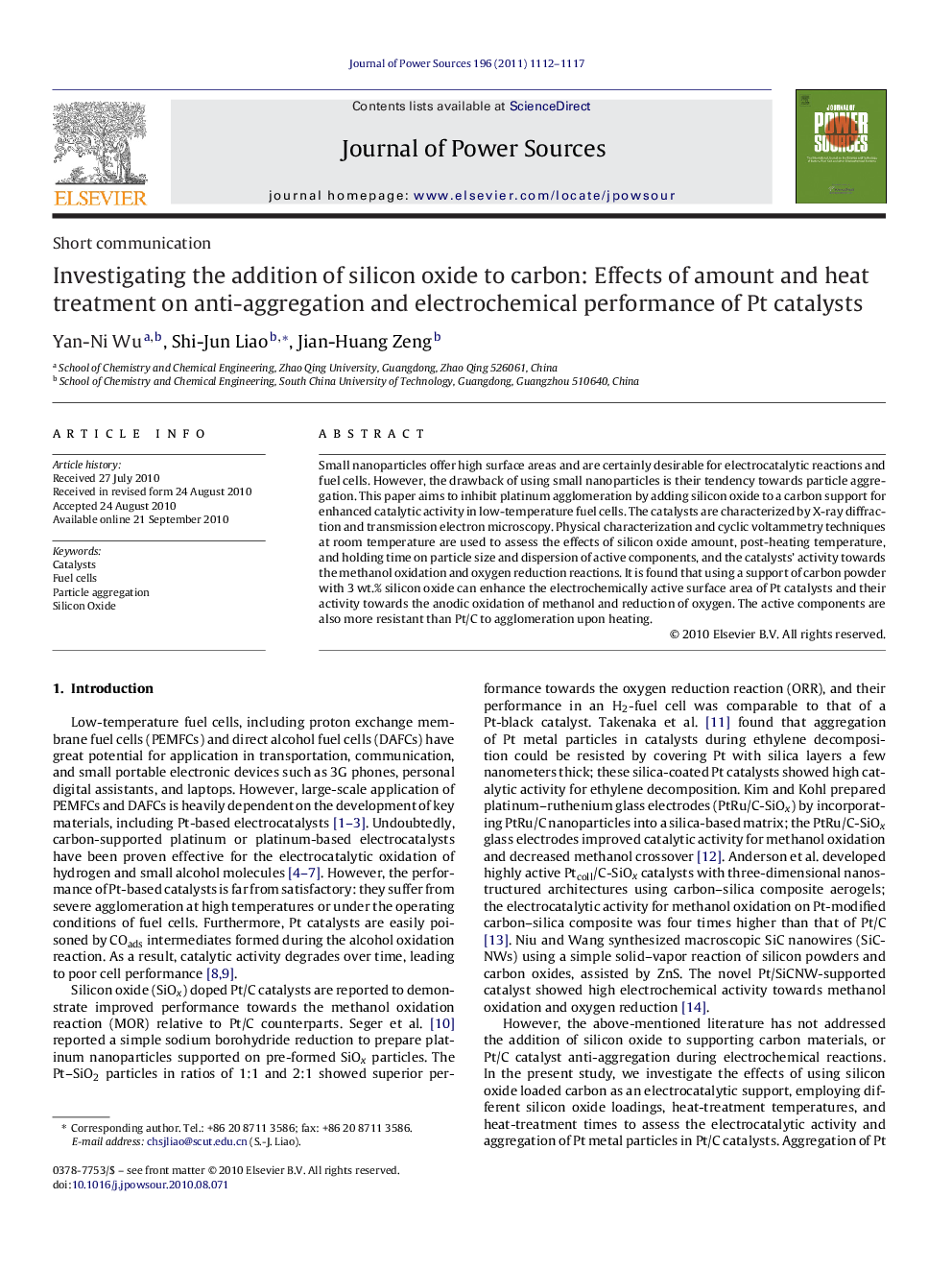| Article ID | Journal | Published Year | Pages | File Type |
|---|---|---|---|---|
| 1289597 | Journal of Power Sources | 2011 | 6 Pages |
Abstract
Small nanoparticles offer high surface areas and are certainly desirable for electrocatalytic reactions and fuel cells. However, the drawback of using small nanoparticles is their tendency towards particle aggregation. This paper aims to inhibit platinum agglomeration by adding silicon oxide to a carbon support for enhanced catalytic activity in low-temperature fuel cells. The catalysts are characterized by X-ray diffraction and transmission electron microscopy. Physical characterization and cyclic voltammetry techniques at room temperature are used to assess the effects of silicon oxide amount, post-heating temperature, and holding time on particle size and dispersion of active components, and the catalysts' activity towards the methanol oxidation and oxygen reduction reactions. It is found that using a support of carbon powder with 3Â wt.% silicon oxide can enhance the electrochemically active surface area of Pt catalysts and their activity towards the anodic oxidation of methanol and reduction of oxygen. The active components are also more resistant than Pt/C to agglomeration upon heating.
Related Topics
Physical Sciences and Engineering
Chemistry
Electrochemistry
Authors
Yan-Ni Wu, Shi-Jun Liao, Jian-Huang Zeng,
